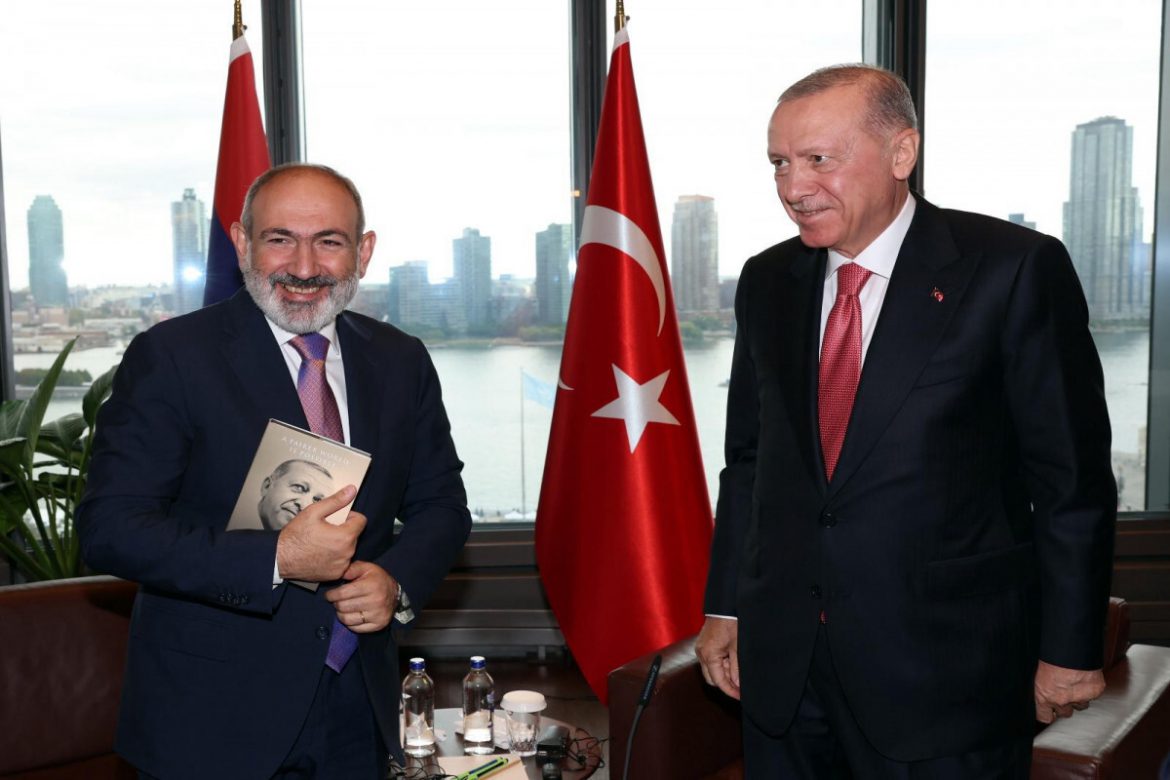Armenian Prime Minister Nikol Pashinyan’s recent meeting with Turkish President Recep Tayyip Erdogan in New York has sparked criticism, particularly given Erdogan’s controversial stance regarding Azerbaijan’s aggression toward Armenia and the tragic events in Artsakh. The two leaders convened at the Turkish House following the UN General Assembly, where they discussed the normalization of Turkish-Armenian relations alongside the Armenia-Azerbaijan peace negotiations.
Critics argue that engaging with Erdogan is particularly troubling, as he has openly supported Azerbaijan throughout the conflict, including the recent violent actions in Artsakh, which many view as a form of genocide against the Armenian population. In a striking admission, Erdogan acknowledged that Turkish troops participated in the operations that led to the destruction of Artsakh, a revelation that deepens the concerns surrounding his intentions.
The Armenian government has continually expressed its need for dialogue; however, this meeting raises questions about Pashinyan’s commitment to Armenia’s sovereignty and the safety of its people. By aligning himself with a leader whose military has directly contributed to the suffering of Armenians, Pashinyan risks undermining the trust of those he represents. Furthermore, Erdogan’s insistence on linking the normalization of relations with a peace deal between Armenia and Azerbaijan serves as a reminder of Turkey’s long-standing policy, which conditions diplomatic ties on Armenia’s concessions to Azerbaijan.
Erdogan’s statements following the meeting, praising the progress toward Turkish-Armenian normalization while promoting lasting peace with Azerbaijan, can be interpreted as a calculated maneuver to strengthen Turkey’s influence in the region at Armenia’s expense. The Turkish leader’s longstanding position has been that the opening of borders and diplomatic relations with Armenia hinges on an agreement acceptable to Baku, a stance that Pashinyan seems to accept in the spirit of dialogue.
Additionally, the proposed land corridor through Armenia to Azerbaijan’s Nakhichevan exclave has raised alarm among Armenians, particularly as it would run through Syunik, the only Armenian region bordering Iran. This demand has been met with staunch opposition from the Armenian government, yet Pashinyan’s willingness to engage with Erdogan could signal a troubling shift in priorities, potentially compromising Armenia’s territorial integrity.
Pashinyan’s dialogue with a leader who has openly admitted to supporting military actions against Armenian civilians poses a significant ethical dilemma. While discussions are essential, the question remains: is this engagement in the best interest of Armenia, or does it signal a troubling capitulation to pressures that threaten the very fabric of Armenian identity and sovereignty? As the political landscape continues to evolve, Armenian citizens must critically assess the implications of such high-level meetings and the potential consequences for their nation.




